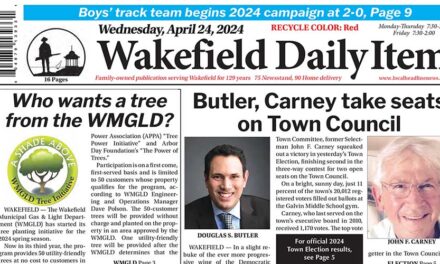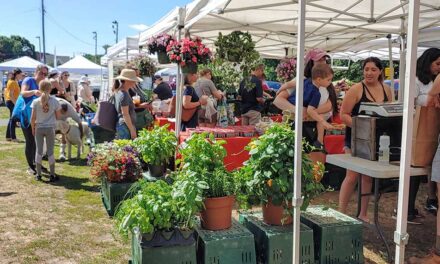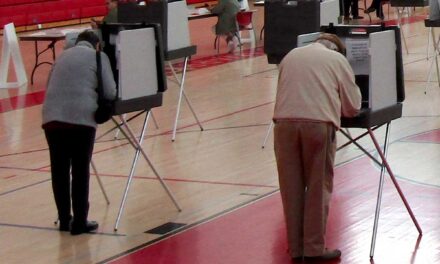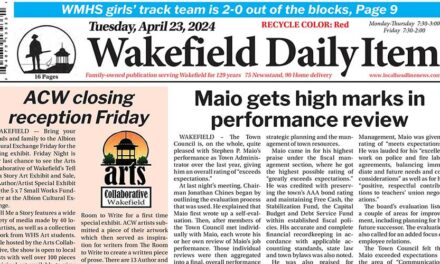Published in the September 12, 2016 edition.
By MARK SARDELLA
WAKEFIELD — A public forum on the possible reuse of the former Hurd School is set for 6:15 p.m. tomorrow at the at Cordis St. school building. The forum is to gather public input on the possible sale of other reuse of the school building.
A former neighborhood elementary school, the Hurd School was built on Cordis Street in 1899. It closed as a public school in the early 2000s. After Our Lady of Nazareth Academy, a Catholic School on Winship Drive, closed in 2009, a group of parents organized and leased the Hurd School from the town for a school they called Nazareth Academy. Earlier this year, Nazareth Academy announced that it would be closing to join with the fledgling Academy at Penguin Hall in Wenham, another school in the Catholic tradition.
Any sale of the Hurd school would not be imminent, as a number of steps would have to take place before any sale could happen, including an appraisal, neighborhood meetings, and a request for proposals. The Board of Selectmen and Town Meeting would have to approve any sale.
Town Administrator Stephen P. Maio has estimated that the town could get in excess of $1 million for the school and speculated that among possible interested buyers would be developers interested in converting the building into condominiums, as was done with the Franklin School building on Nahant Street.
Selling the building is not the only option. Some residents have suggested retaining the school as “flex space,” to be used while other schools or town-owned buildings are undergoing renovations. Other options mentioned have been a space for the Boys & Girls Club, a hockey area, an indoor farmers market or artist studios.
Members of the Board of Selectmen have stressed that they would be especially interested in the feedback of neighbors regarding the disposition of the Hurd School building.
If the building is eventually sold, it could be one element of a proposed new Debt Service/Capital Program that Maio described to the Board of Selectmen in August that would upgrade the towns roads and streetscapes and improve some of the town’s playgrounds and other facilities.
Maio reminded the selectmen that June 25, 1998 Special Town Meeting requested a home rule petition to establish a Debt Service Fund. Starting in 2,000, he said, $1 million has been automatically added to the fund every year from the town budget. Town Meeting has been supplementing that amount annually bringing the yearly debt service appropriation to $2.8 million.
This process, Maio said, has allowed the town to issue bonds to complete a number of capital projects to renovate or upgrade town facilities within the limitations of Proposition 2½, including the Dolbeare School, the Woodville School, Beebe Library, the Senior Center, the Public Safety Building, land acquisition and a major upgrade to the town’s recreational facilities.
The total cost of those improvements, Maio said, was $45,315,000, leaving a current balance of $9 million in the Debt Service Account.
“It’s been a very healthy program for the town and it has allowed us to do a lot,” Maio said.
Continuing the current program, Maio said would leave the town with a Debt Service balance of $28 million by 2040 if no new projects were done, Maio said.
But continuing with its current Debt Service Program and adding the estimated $1 million from the sale of the Hurd School would give the town the financial potential to complete a number of new projects, Maio said, especially considering that some of the bonds on the previous projects will be paid off in the next few years.
Maio asked the board to consider the possibility of a series of $2.5 million municipal bonds over the next four years. The first year the town could tackle what he called “equity issues” regarding the town’s recreational facilities used mainly by female student athletes, particularly in the softball area. He mentioned Mapleway Field, Blatz Field and Veterans Field. Other projects like the tennis courts behind the Hartshorne House could also be included, he said.
Another $7.5 million could be borrowed over the following three years to upgrade the town’s roads and streetscapes, Maio suggested. He noted that the Chapter 90 funding provided by the state is insufficient to allow the town to keep up with the number of street miles that should be repaved and maintained each year.
All of this could be accomplished, Maio suggested, by continuing with the town’s current Debt Service Program, selling the Hurd School and continuing to supplement road improvements at $200,000 a year.
He said that the town’s debt service payment would initially go up to about $2.5 million a year, but then would drop rapidly as more of the earlier projects are paid off.
Board members signaled their agreement with the overall direction outlined by Maio. Selectmen Ann Santos and Phyllis Hull were especially supportive of upgrading the fields used primarily for girls’ sports.
Selectman Peter May asked if there was a way that the town could keep and use the Hurd School building rather than selling it. Maio said that his thought was to sell it and get it back on the tax rolls. But he stressed that any decision would be up to the selectmen and Town Meeting.
The board authorized Maio to get an appraisal of the Hurd building and begin the RFP process and to schedule a forum to gather public input.




